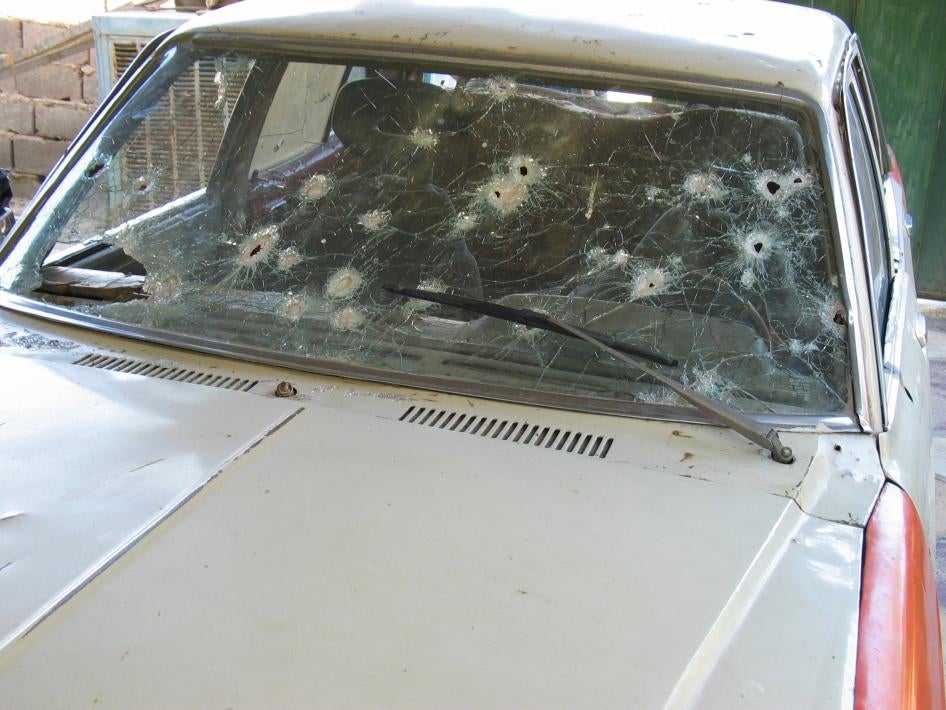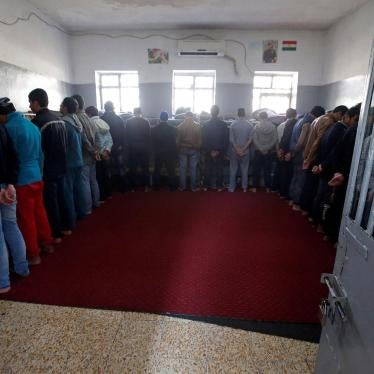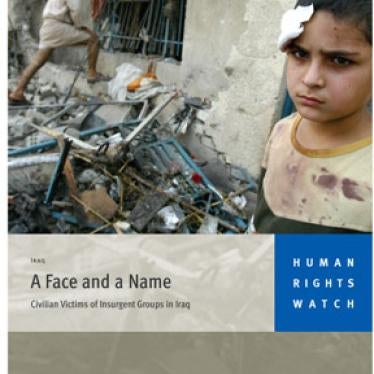With major military operations continuing in al-Falluja, U.S. authorities should investigate the apparent use of excessive force against Iraqi protesters there on April 28 and 30, Human Rights Watch urged in a new report released today.
The 18-page report, "Violent Response: The U.S. Army in al-Falluja," challenges the U.S. military's assertion that its troops came under direct fire from individuals in the crowd of protesters on April 28. Human Rights Watch found no conclusive evidence of bullet damage on the school where the soldiers were based. In contrast, buildings facing the school had extensive multi-caliber bullet impacts that were inconsistent with U.S. assertions that soldiers had responded with "precision fire."
The Human Rights Watch report also asserts that U.S. authorities failed to equip or adequately train the troops, primarily paratroopers of the 82nd Airborne Division, for the complex law enforcement tasks of military occupation. U.S. military and political authorities are also to blame for placing combat-ready soldiers in the highly volatile environment of al-Falluja without adequate law enforcement training and crowd control devices, the report said. Even translators were lacking.
"The U.S. military presence in al-Fallujah began with these tragic events in late April, and it has been troubled ever since," said Hanny Megally, executive director of the Middle East and North Africa division of Human Rights Watch. "What is needed is a thorough investigation of possible violations of international humanitarian law by U.S. troops."
Megally said that U.S. forces perceived a threat from the crowd that day, but the evidence indicates that they responded with disproportionate force.
U.S. forces moved into al-Falluja, a town of 300,000 about sixty kilometers (thirty-five miles) west of Baghdad, on April 23. On April 28, a demonstration calling for U.S. soldiers to leave turned confrontational. Iraqi witnesses said that U.S. soldiers fired without provocation, killing seventeen people and wounding more than seventy. U.S. soldiers and commanders on the scene and Central Command headquarters asserted that the soldiers returned "precision fire" against gunmen in the crowd who had opened fire first. Two days later, a military convoy driving through al-Falluja opened fire in the midst of another demonstration, killing three Iraqis and wounding at least sixteen.
Human Rights Watch interviewed victims, witnesses, and U.S. soldiers and commanders, and investigated ballistics evidence at the scene.
Under international humanitarian law, the United States, as the occupying power in Iraq, has the obligation to ensure public order and safety, Human Rights Watch said. When engaged in law enforcement functions, such as crowd control, law enforcement standards should govern their actions. The United Nations Basic Principles on the Use of Force and Firearms by Law Enforcement Officials apply to all those who exercise police powers, including soldiers when they are acting in this capacity. Law enforcement officials may use lethal force only "when strictly unavoidable in order to protect life." When doing so they must act with restraint and in proportion to the seriousness of the offence, minimize injury, and respect and preserve human life.
Human Rights Watch called on U.S. authorities to carry out a full, independent, and impartial investigation of the al-Falluja incidents. Such an investigation should aim to determine the full circumstances that led to the killing of as many as twenty Iraqis, and to hold accountable anyone found to have violated international humanitarian law.
Human Rights Watch's findings are not a substitute for a full independent and impartial investigation, which would have access to classified evidence such as communications between U.S. commanders, debriefings of the soldiers involved, and other intelligence sources, Megally said. An investigation should also focus on the possible role of provocateurs within the crowd.
If the investigation finds there was unlawful use of force, the U.S. government should provide compensation to victims, Megally said.







